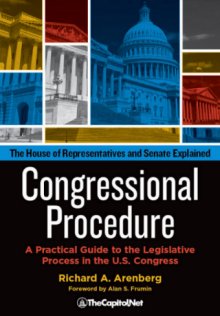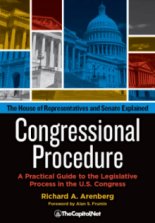Deeming Resolution (CongressionalGlossary.com)
From the Congressional Glossary – Including Legislative and Budget Terms Deeming Resolution “Deeming resolution” is a term that refers to legislation deemed to serve as an annual budget resolution for purposes of establishing enforceable budget levels for a budget cycle. A deeming resolution is used when the House and Senate are late in reaching final … Read more




